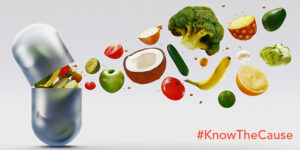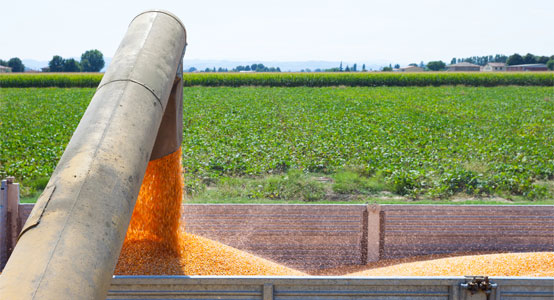

|
Some of the greatest inventions throughout human history have been those that allowed us to feed ourselves more efficiently. For example: When people began farming and domesticating livestock, it allowed them to settle into more permanent dwellings, have a steadier and more reliable source of food, and provided them time to focus on endeavors other than procuring their daily sustenance. Advances in the way we ate literally paved the way for advances in science, art, culture and human civilization.
Zoom forward thousands of years – industrial farming provides much of the world with a steady source of readily available food. Industrial farming may have changed people’s focus thousands of years ago may have still centered around feeding themselves on a regular basis, we’ve become even more removed from the thought of what we are going to put in our body on a daily basis; feeding oneself is only a component of the worries of modern man in the industrialized world. Furthermore, seasonal food – foods that traditionally were only available at certain times of the year are now available year round, with our global food nexus connecting us to areas suitable for growing foods like asparagus and berries year round. So, technology has even removed the seasonal challenge of agriculture to provide us with a steady supply of crops. What has resulted for us is a general surplus of available food, and ultimately, quantity of food isn’t much of a concern.
(Please don’t think of this as making light of those that suffer from hunger or even starvation. World hunger is a huge, devastating problem, but the problems of surplus have brought on new challenges in the industrialized world, challenges that most often have implications on health.)
The food system that permeates through most of the industrialized world has become fairly standardized, with certain foods being pretty ubiquitous throughout that system. Furthermore, our relationship to that system has changed in such a way that we don’t necessarily think about what we are eating. And, even furthermore, while we may have the idea that we are eating a variety of foods, when you get down to the components that comprise the industrialized food system, you find that a lot of it simply comes from the same stuff!
To provide an example: In his best selling book, Omnivore’s Dilemma, Michael Pollan outlines brilliantly how a meal from McDonald’s is essentially created out of a surplus of corn! Corn syrup, corn starch, corn feed for the beef, corn oil to fry the fries in – all of these are part of the way a meal at McDonalds is prepared. So, you have food system that permeates the entire world providing food that many people consume daily that serves a menu derived from the same stuff! Corn is a ubiquitous ingredient in the American diet. It is likely – in some way, form or fashion – in the majority of heavily processed foods available to buy. Food scientists have figured out a way to use corn for virtually everything, which is why is remains as one of the biggest crops farmed today. However, corn is has been found to be universally contaminated with mycotoxins – fungal poisons that can be deleterious to human health. Corn’s ubiquity combined with it’s universal contamination by some of the most toxic natural chemicals known to man is something we should all be concerned about.
So, ultimately, despite our surplus of food and the variety of foods available, corn and it’s concomitant toxins are a pervasive part of our food supply. When you are on The Kaufmann 1 Diet, be sure to read the labels of food you buy; you’ll likely find corn hidden in place you would have never though you’d have found it. |
| {flike} |
{module FL-VOL1}
Related Articles
{module Related Articles}
{module Watch Know The Cause (Banner)}
Doug Kaufmann has written many books that cover a full range or health issues. Find out which of his books best suits you by clicking the button below.
Doug Kaufmann developed his diet after years studying the clinical effects of pathogenic fungi on the body. Fungi and yeasts can become parasitic organisms on and inside our body, causing health problems that can be difficult to diagnose. Learn more about the Kaufmann Diet, change your life and know the cause.
We encourage all visitors to this site to take some time and study these technical articles prior to initiating lifestyle changes, including dietary changes and to do so with their physician’s awareness and approval. The articles posted in this link are scientific and with few exceptions are taken from medical journals familiar to healthcare workers.
Looking for help assembling antifungal Kaufmann Diet approved recipes for breakfast, lunch or dinner? We have several videos, books and recipe write ups here on Know the Cause that will help your health journey. The recipes in this section are so good, you’ll feel like you’re indulging. No sacrifice needed! Enjoy.
© 2024 Mediatriton Inc. All Rights Reserved • Website by Skynet Solutions